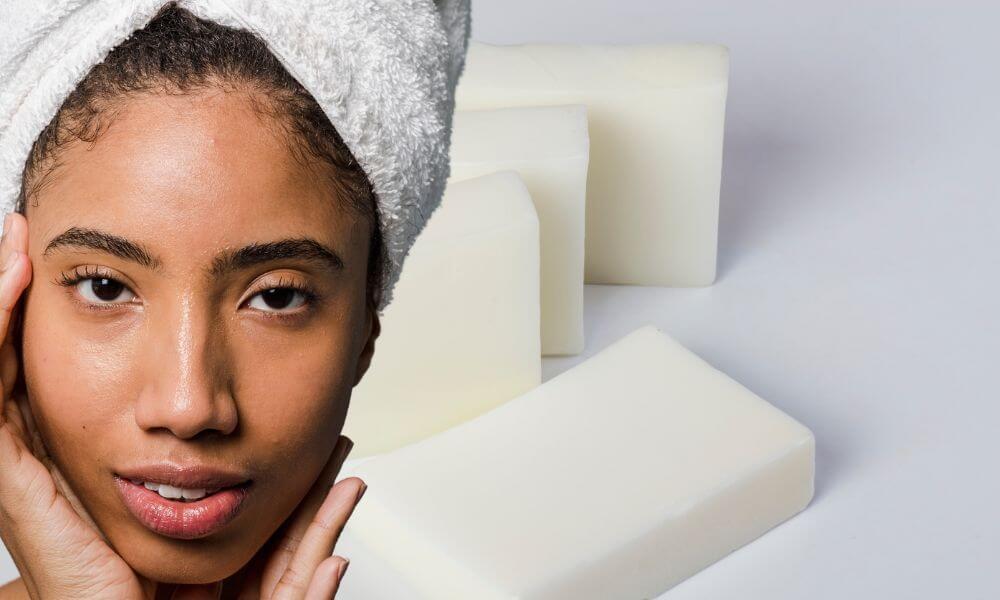The important caveat to make right away is that everyone’s skin is different, and will respond differently to different products.
Goat milk soap can certainly be shown to have brightening effects on skin, but this won’t be universally true.
For your skin, it’s always advisable to test out a new product on a small patch of skin if you’re unsure how you might react to it.
Let’s look further into this.
Can goat milk soap lighten the skin?
Yes, it certainly can.
Studies conducted have shown that goat milk soap can have significant skin brightening qualities, on the level of actually increasing the amount of melanin in an individual’s skin.
Volunteers in the project underwent a three-day trial period, during which they were to use the soap every day.
At the end of the period, measures such as Cutometers and Mexameter probes showed that the skin of the volunteers was significantly brighter versus the control group.
So, these results are as when compared with ordinary soap—that is an important caveat.
They brighten well mainly in comparison to ordinary soap.
There is definitely still a lot of research to be done on this question, but initial results seem promising.
Goat milk soap not only temporarily brightens the skin, but fundamentally alters the chemistry of your face to make it permanently brighter.
That said, consistent use is always going to be the best routes to these kinds of results.
There is no shortcut to these sorts of effects.
Is it good for already bright skin, then?
Is goat milk soap good for white skin?
Yes, it certainly is. It is good in a lot of ways, but if you are looking to brighten up your skin a touch, then goat milk soap is certainly a great choice.
As I said, the compounds in the soaps can actually increase the amount of melanin in your skin, which is what determines how bright your skin is.
It’s also antimicrobial and antifungal, as well as a whole host of other benefits.
The issue of brightening one’s skin can be a slightly blurred line to walk, since some cultures are reportedly set on increasing their customer’s ‘whiteness’.
But goat milk soap is great for black skin too.
Is goat milk soap good for black skin?
Yes, it really is, in many ways.
It will still have a brightening quality and will make your skin shine more.
It also contains ample nutritional value like calcium, vitamin A, B, and tons of fatty acids.
All of these things are vital to good skincare, and your skin will feel so much more nourished after you’ve been consistently using goat milk soap.
They have moisturizing, exfoliating, and skin softening properties—as well as brightening if that’s something you’re looking for.
Brightening doesn’t always mean whitening, remember.
How long does it all take, then?
How long does it take for goat milk soap to lighten skin?
As you saw above, the study showed results after only a few days—but these results were only visible with pretty sophisticated measuring devices.
The effects will begin to take hold almost immediately, but seeing the results for yourself is going to take a bit of work.
At the very least, you should be consistently using the goat milk soap for three weeks before you can expect to any significant results.
Your skin will feel and look better immediately, but for tangible brightening effects, you’ll need more than that.
Finally, then, can you use this soap on your face?
Can I use goat milk soap on my face?
Yes, you certainly can, and it will have the same brightening effect on your face as anywhere else on your body.
That said, you do again need to be sure that goat milk soap is right for your skin before you go ahead and apply it to your face.
Try it in a small area and see how you react.
It will almost certainly produce no negative reaction, but it’s much better to be certain of this before you cover your face in it.
Goat milk soap is a really great product all round, and you can use it on your whole body.
Just test it out first before you do anything rash.
It’s quite clear, then, that goat milk soap does indeed have some inherently skin brightening qualities.
Again, this can’t be universally true for everyone because everyone’s skin is different.
That said, though, it’s definitely worth a try, and there’s good reason to think it might have that effect on your skin.
Always take the time to test it out, and get advice from a dermatologist if you aren’t sure.
Skincare is a complex thing.

